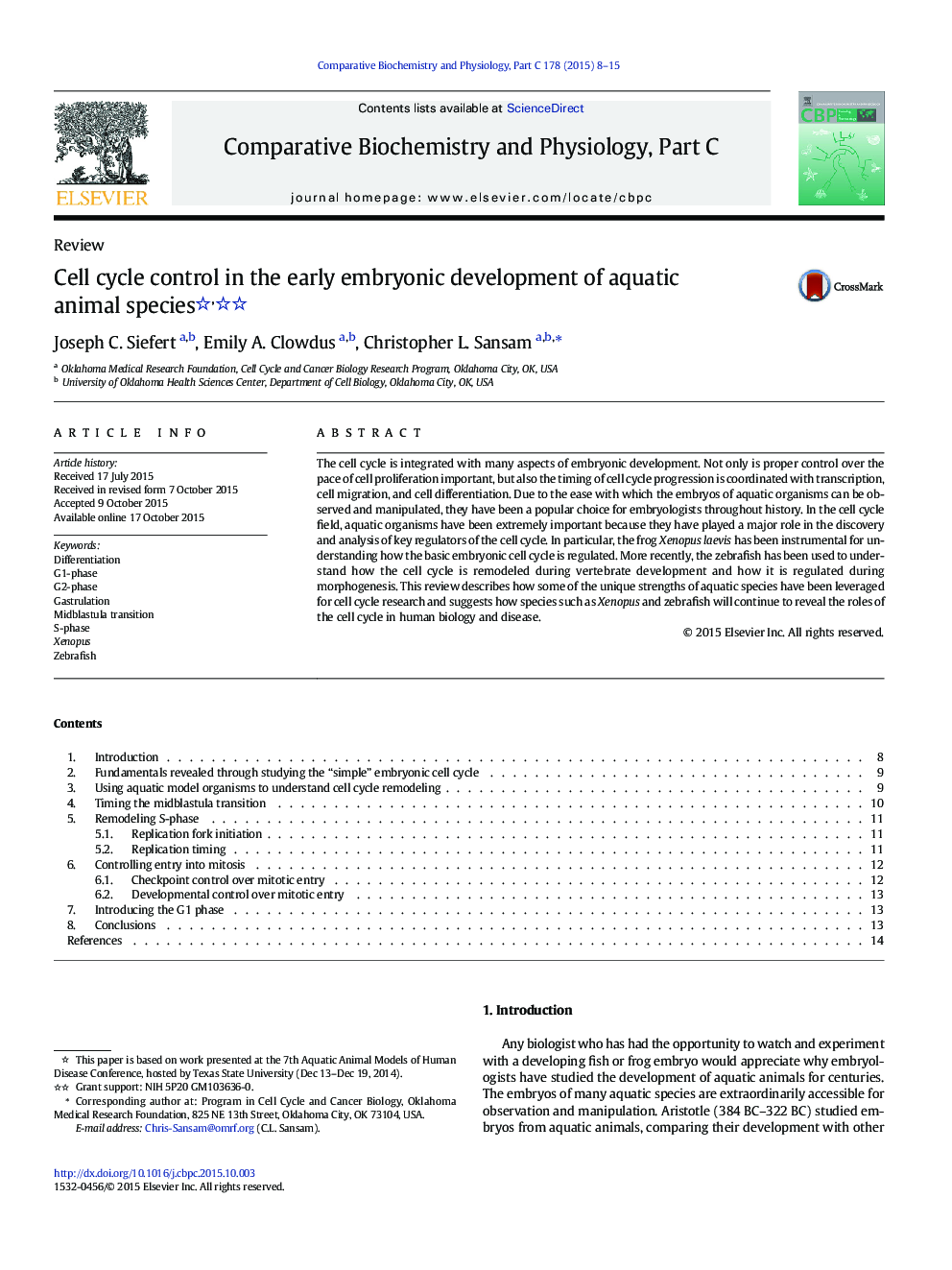| Article ID | Journal | Published Year | Pages | File Type |
|---|---|---|---|---|
| 1977189 | Comparative Biochemistry and Physiology Part C: Toxicology & Pharmacology | 2015 | 8 Pages |
The cell cycle is integrated with many aspects of embryonic development. Not only is proper control over the pace of cell proliferation important, but also the timing of cell cycle progression is coordinated with transcription, cell migration, and cell differentiation. Due to the ease with which the embryos of aquatic organisms can be observed and manipulated, they have been a popular choice for embryologists throughout history. In the cell cycle field, aquatic organisms have been extremely important because they have played a major role in the discovery and analysis of key regulators of the cell cycle. In particular, the frog Xenopus laevis has been instrumental for understanding how the basic embryonic cell cycle is regulated. More recently, the zebrafish has been used to understand how the cell cycle is remodeled during vertebrate development and how it is regulated during morphogenesis. This review describes how some of the unique strengths of aquatic species have been leveraged for cell cycle research and suggests how species such as Xenopus and zebrafish will continue to reveal the roles of the cell cycle in human biology and disease.
